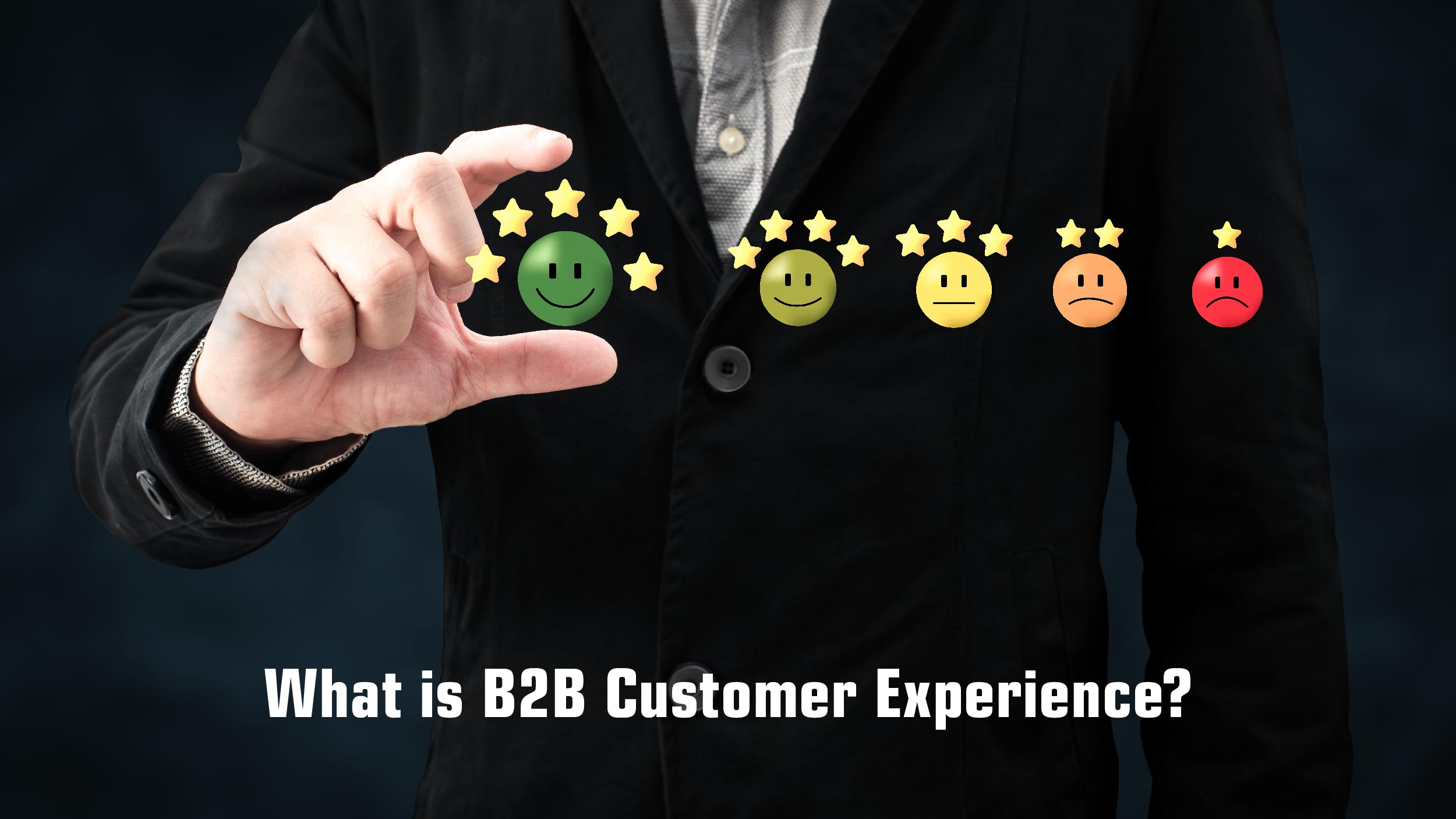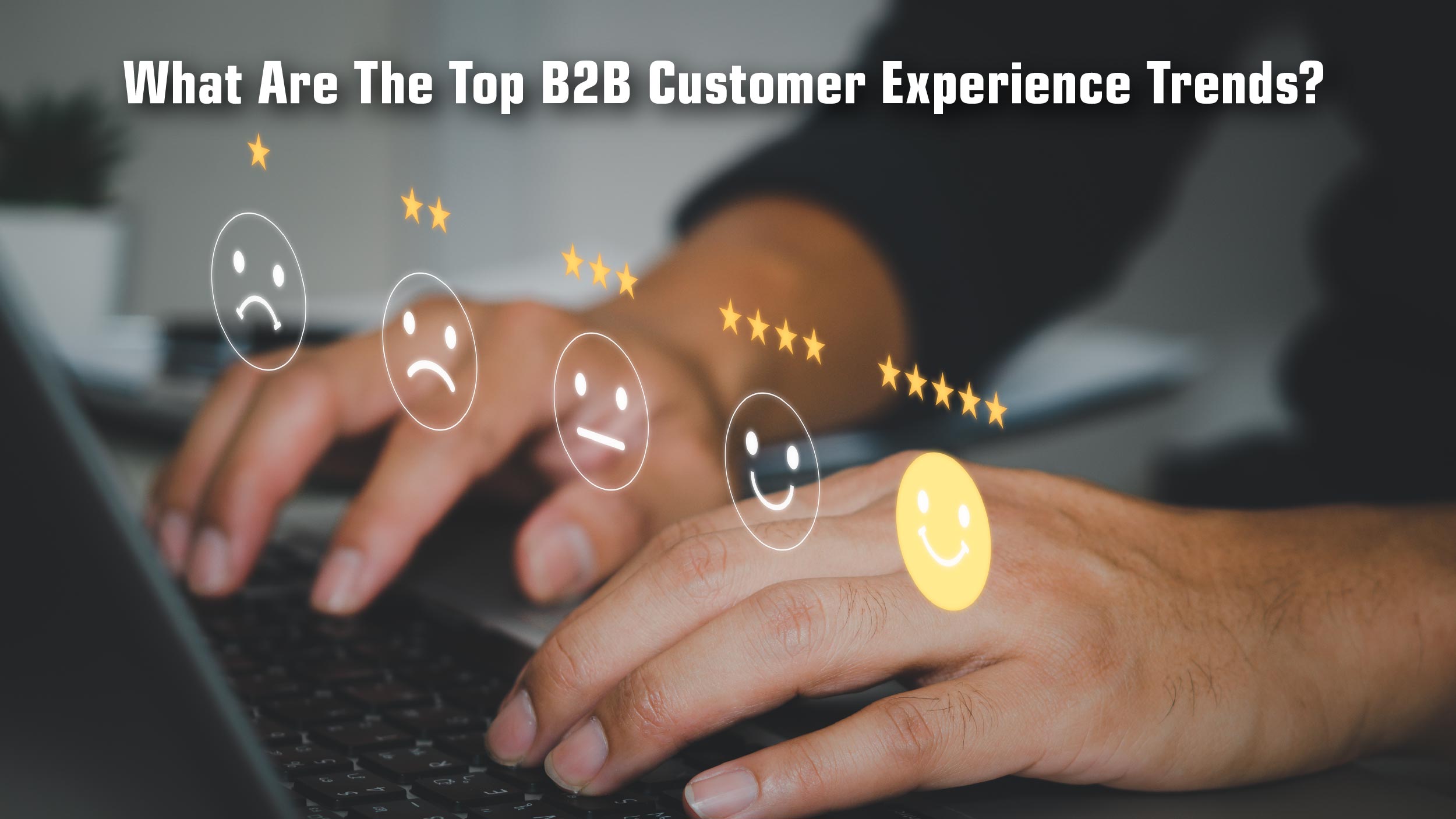In our contemporary era, the significance of customer experience cannot be overstated. Beyond mere price considerations or product quality, the customer experience is poised to become the paramount differentiator in attracting and retaining customers, even within the B2B (business-to-business) realm.
B2B customer experience is transforming business and customer expectations. According to a recent study by Deloitte, customers not only recognize but also actively value and embrace the experiences delivered by businesses—an acknowledgment that directly translates into enhanced growth and profitability. Let’s learn more about it.
What is B2B Customer Experience?
 The B2B customer experience (CX) refers to the interactions and overall satisfaction that businesses provide to their business customers. It encompasses every touchpoint and interaction throughout the customer journey, from initial contact to post-purchase support. B2B CX is crucial for building strong relationships, reducing churn, and driving business growth. However, it presents unique challenges compared to B2C (business-to-customer) customer experience due to complex purchasing patterns, long supply chains, and multiple stakeholders involved.
The B2B customer experience (CX) refers to the interactions and overall satisfaction that businesses provide to their business customers. It encompasses every touchpoint and interaction throughout the customer journey, from initial contact to post-purchase support. B2B CX is crucial for building strong relationships, reducing churn, and driving business growth. However, it presents unique challenges compared to B2C (business-to-customer) customer experience due to complex purchasing patterns, long supply chains, and multiple stakeholders involved.
Why Does B2B CX Matter?
Below are some of the key points why B2B customer experience matters.
- Changing Expectations: B2B buyers now expect the same seamless and personalized experiences they have as B2C consumers.
- Customer Loyalty and Repeat Business: Delivering a great B2B CX can lead to increased customer loyalty, repeat business, and positive referrals.
- Business Outcomes: Companies with excellent CX outperform competitors in terms of revenue growth and customer retention.
- Competitive Advantage: By focusing on speed, ease, consistency, relevancy, transparency, and personalization, B2B companies can differentiate themselves and gain a competitive edge.
- Customer-Centric Culture: B2B CX is crucial for building a customer-centric culture within an organization and driving continuous improvement.
Also Read: The Ultimate Guide to Salesforce Marketing Automation: Boost Your Sales Efforts
What is the Difference Between B2B and B2C Customer Experience?
The difference between B2B and B2C customer experience can be summarized as follows:
Target Audience: B2B customer experience focuses on businesses and their employees, while B2C customer experience focuses on individual consumers.
Complexity: B2B customer support and experiences tend to be more complex due to the involvement of multiple stakeholders, longer sales cycles, and intricate purchasing processes. B2C customer support is typically more straightforward.
Relationship Building: B2B customer experience emphasizes building long-term relationships with business clients, while B2C customer experience often focuses on creating memorable experiences to encourage repeat purchases.
Personalization: B2B CX often involves personalization at the company or account level, tailoring solutions to meet specific business needs. B2C customer experience focuses on personalization at the individual consumer level.
Marketing Strategies: B2B marketing strategies often involve targeted advertising, content marketing, and relationship-building tactics. B2C marketing strategies prioritize creating emotional connections, delivering memorable experiences, and appealing to a broader consumer base.
Sales Process: The path to purchase differs between B2B and B2C, with B2B sales cycles typically being longer and involving more decision-makers. B2C sales processes are often quicker and more focused on individual consumer preferences.
What Are The Top B2B Customer Experience Trends?
 In today’s competitive landscape, businesses are striving to stay ahead by delivering exceptional B2B customer experiences. Here are some of the key trends shaping customer interactions:
In today’s competitive landscape, businesses are striving to stay ahead by delivering exceptional B2B customer experiences. Here are some of the key trends shaping customer interactions:
Customer-centric experiences: In an era of abundant choices, customers crave personalized, human interactions. They no longer wish to be viewed merely as sources of revenue but rather as valued patrons. Businesses that prioritize reducing complexities and promptly resolving issues are better positioned to retain customer loyalty.
Self-service options: While customers appreciate personalized experiences, they also seek swift issue resolution. Effective self-service options can cater to this need, allowing customers to address their concerns independently. For instance, a comprehensive knowledge base equipped with how-to guides and instructional videos empowers customers to manage tasks autonomously. Additionally, deploying chatbots capable of directing customers to relevant resources minimizes friction and enhances overall value.
Right channel for the great experience: Customers expect brands to adapt to their evolving preferences by offering tailored experiences across appropriate channels. Rather than limiting interactions to a few standard channels, successful businesses recognize the importance of providing diverse communication mediums throughout the customer journey. Whether it’s email, text messages, or social media platforms like Twitter, brands that accommodate customer preferences excel in delivering seamless experiences.
How to Design a B2B Customer Experience Strategy?
Crafting a B2B customer experience (CX) strategy tailored to surpass consumer expectations is essential for long-term success. Recent studies reveal that a staggering 86% of buyers are willing to pay more for a superior customer experience. Furthermore, a staggering 96% of customers indicate that their experience significantly impacts their decision to repurchase, underscoring the critical importance of an effective strategy.
So, where should you begin?
- Establish your customer health benchmark score: Benchmarking your current standing and potential growth is crucial for optimizing your customer experience. While you may already employ various metrics to gauge your customer relationships, consolidating this data into a cohesive, easily interpretable score can elevate your customer interactions. For instance, analyzing factors like customer tenure and engagement with new solutions can provide insights into their receptiveness to new offerings and the likelihood of making repeat purchases. Contrasting this information against that of new or infrequently upgrading customers can illuminate opportunities for enhanced engagement and positive change.
- Collect feedback: A successful B2B CX strategy prioritizes quality over quantity when it comes to feedback. Effectively collecting and analyzing feedback is essential for obtaining a comprehensive understanding of how customers wish to engage with your brand. Key steps in this process include tailored outreach to gather feedback, surveying customers at an optimized frequency, improving response rates, incentivizing data collection ethically, and closing the feedback loop by taking actionable steps based on insights gathered.
- Understand the B2B customer journey: Understanding how customers navigate their purchasing decisions is critical for adapting and refining your CX strategy. This begins with comprehending the buyer’s journey, which typically encompasses three main stages: awareness, consideration, and decision. By gathering data, segmenting your customer base, and optimizing the buyer journey, you can tailor each stage to your prospects’ needs, thereby enhancing value and increasing the likelihood of converting prospects into customers, especially within the B2B landscape.
Final Takeaway
B2B customer experience stands as a critical determinant of success in today’s competitive landscape. As businesses increasingly recognize the pivotal role of customer-centricity, the importance of delivering exceptional experiences at every touchpoint of the buyer journey cannot be overstated. By prioritizing the creation of personalized, seamless interactions that anticipate and address the unique needs of B2B clientele, organizations can cultivate strong customer relationships, foster loyalty, and drive sustainable growth. As we move forward, continued investment in B2B customer experience will undoubtedly remain a cornerstone of success for businesses seeking to thrive in an ever-evolving marketplace.


Comments are closed.